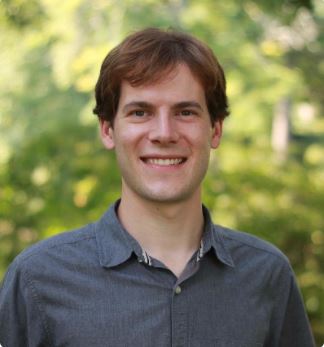
What is your current profession/job? What did you study at Yale? When did you graduate?
I’m a software engineer at Optimus Ride, a startup in Boston developing self-driving cars. At Yale, I studied
physics, graduating with a PhD in 2018. I worked on CUORE, a nuclear physics experiment, with an
international team of approximately 150 scientists and engineers.
What do you like most about your current role? What do you find most challenging and/ or
rewarding?
Many of the things that I like most about my current role were also present in grad school. I love that I get to
work on challenging problems with a group of really smart people. I enjoy the feeling of building something
new, where there’s no predetermined “right” way to do things, and where I can both design and execute ideas.
What I find most challenging and rewarding is the effort that goes into bringing products to market. When you’re
building autonomous vehicles, or any product that is designed to be used by any number of people in the
general public, you need to design it as such, and everything needs to work essentially all of the time. It’s a
very different type of rigor than I experienced in grad school. Working in physics, everything that affected the
science mattered a whole lot, but the requirements for everything else were that the equipment not fall apart
during the experiment and the software run well most of the time. This is an approach that makes a lot of sense
for research and much less sense for product development with a consumer in mind.
How did your time at Yale shape your career trajectory?
Graduate school is often seen as a time of intense specialization, and that characterization is largely true. For
me, specialization in graduate school meant that I learned an incredible amount about a small subset of nuclear
physics, but on the other hand, I also learned a whole set of practical skills that helped along the way. In any
given week, I could be acting as a software engineer, electrical engineer, mechanical engineer, cryogenic
engineer, or vacuum engineer, in addition to being a physicist. Never mind the fact that graduate students are
often their own project managers and communications departments. Now, I’m focused only on the software
engineering aspect of things, but I have the experience in all of those other areas to work effectively in cross-
functional teams. If I hadn’t gone to graduate school, I don’t think I could be nearly as effective in my current
position as I am now.
What are the main skills that you acquired as a PhD student which help make you successful in
your current career?
I think the most important skill I acquired as a PhD student is effective communication. I’m a better worker
when I understand not only what I’m doing, but what others around me are doing as well. And my work is better
when I discuss it with others, since everyone sees things from a different perspective and brings their own
experiences, successes and failures, to the table. Knowing how to communicate well with people in your field,
and with people outside your field, is critical.
Relatedly, just like in academia, ideas are rarely created in a vacuum, and most problems have been solved
before. If you spend time reinventing the wheel, 99% of the time your solution won’t be better than the best
ones out there already. Good communication helps you clearly identify the problems you’re having so you can
get to solutions more quickly. And sometimes, particularly in software engineering, good communication just
means condensing a question down into a Google search and looking through a mess of forum posts for the
best answer.
Did you acquire any professional experience related to your line of work while in graduate school
(either through part-time work, volunteering, networking, or other forms of training)?
I’ve always loved coding, so I did take on research projects in graduate school that allowed me to code. I also
did side projects, like developing websites and web services for the CUORE collaboration. But most of my
preparation was just a constant side presence of coding in my work and elsewhere over the years.
What is the biggest challenge that you face in transitioning to different working places/cultures? What do you suggest current students do to prepare for those challenges?
Moving into the fields of robotics and software engineering meant learning to communicate with a whole new
set of jargon and learning new tools of the trade. And moving into industry in general meant measuring projects
on timescales of days and weeks instead of months and years.
If you’re thinking of moving into a new field in industry, try talking to people in that field and looking at some job
postings in the field, preferably some number of months before you’re applying. Try to figure out what
companies are looking for in interviews, and what tools people use when they’re on the job. If every job posting
says that a particular skill is “preferred,” it’s a good idea to spend some time learning it. Your interviews will be
much better if you do, and either way, now is a good time to find out if it’s something you actually find
interesting!
One last piece of unsolicited advice: practice interviewing early and often. Especially if you’re transitioning
fields, you may not have a similar background to or the exact skills of other applicants. You’ll need to explain,
and demonstrate, why you’re confident you can do the job.
